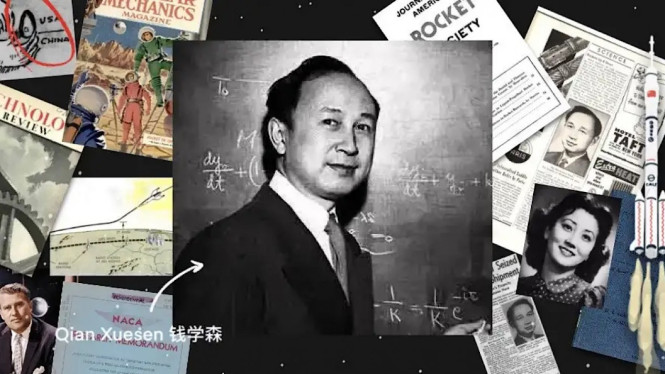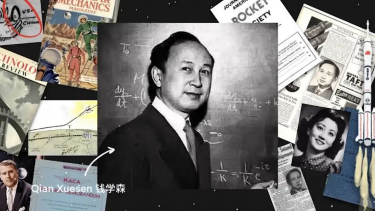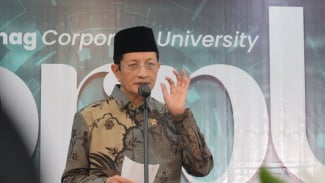Qian Xuesen: Honored Person in China, Expelled from the US
- medium.com
VIVA – Qian Xuesen is one of China's most honorable scientists for helping launch the first satellite and acquire nuclear weapons. The scientist helped China after he was expelled or deported from the United States which was frightened by espionage operations.
His expulsion was condemned by Dan Kimball, former US Secretary of the Navy, who described the expulsion as "the dumbest thing America ever did".
Qian is the father of China's missile and space programs. His research helped develop the rocket that shot China's first satellite into space and the missiles that became part of its nuclear arsenal.
He was born in 1911 when China's last imperial dynasty was about to be replaced by a republic. Both his parents were highly educated and his father, after working in Japan, founded China's national education system.
Proving talented from an early age, he eventually graduated top of his class at Shanghai Jiao Tong University, winning a rare scholarship to the Massachusetts Institute of Technology in the United States (US).
In 1935, a well-dressed young man arrived in Boston, USA. Qian may have experienced xenophobia and racism, says University of North Georgia history professor Chris Jespersen.
Patung Qian Xuesen di China.
- Science
"But there is also a sentiment of hope and belief that China has changed in a fundamentally significant way and he must be among people who respect his knowledge," Chris Jespersen stated.
From MIT Qian moved to the California Institute of Technology (Caltech), to study under one of the most influential aeronautical engineers of the time, Hungarian emigrant Theodore von Karman. There Qian shared an office with another prominent scientist, Frank Malina, who was a key member of a small group of innovators known as the Suicide Squad.
The group got this nickname because they attempted to build rockets on campus and because several experiments using volatile chemicals had failed miserably, says Fraser Macdonald, author of Escape from Earth: A Secret History of the Space Rocket.
One day, Qian engaged in a discussion of a complicated math problem with Malina and the rest of the group and soon he became an integral part of it, producing important research on rocket propulsion.
At the time, according to Macdonald, rocket science was 'the stuff of madness and fantasy'. No one took it seriously; no mathematically inclined engineer would risk their reputation by saying it was the future. But that quickly changed with the start of World War II.
Although Qian denied being a party member, new research shows that he joined at the same time as Frank Malina in 1938. Meanwhile, according to a history professor at California State Polytechnic University, Pomona, Zuoyue Wang, there is no evidence that Qian ever spied for China or became an intelligence agent when he was in the United States.
However, his security clearance was revoked and he was placed under house arrest. Caltech colleagues, including Theodore von Karman, wrote to the government pleading for Qian's innocence, but in vain. In 1955, when Qian had spent five years under house arrest, US President Dwight D Eisenhower decided to deport him to China.
The scientist left by boat with his US-born wife and two children, telling waiting for reporters that he would never set foot in America again. He kept his word.
"He is one of the most prominent scientists in America. He has contributed much and can contribute even more. So, it is not only an insult but also a sense of betrayal," said journalist and author, Tianyu Fang.
When he arrived in China, there was little understanding of rocket science, but 15 years later, he oversaw the launch of the first Chinese satellite into space.
Over the decades, he trained a new generation of scientists, and his work became the basis for China's Lunar Exploration Program.
Ironically, the missile program Qian helped develop in China produced weapons that were later fired back at the US. Qian's Silkworm missiles were fired at the United States in the 1991 Gulf War, says Fraser Macdonald, and in 2016 against the USS Mason by Huti rebels in Yemen.





















